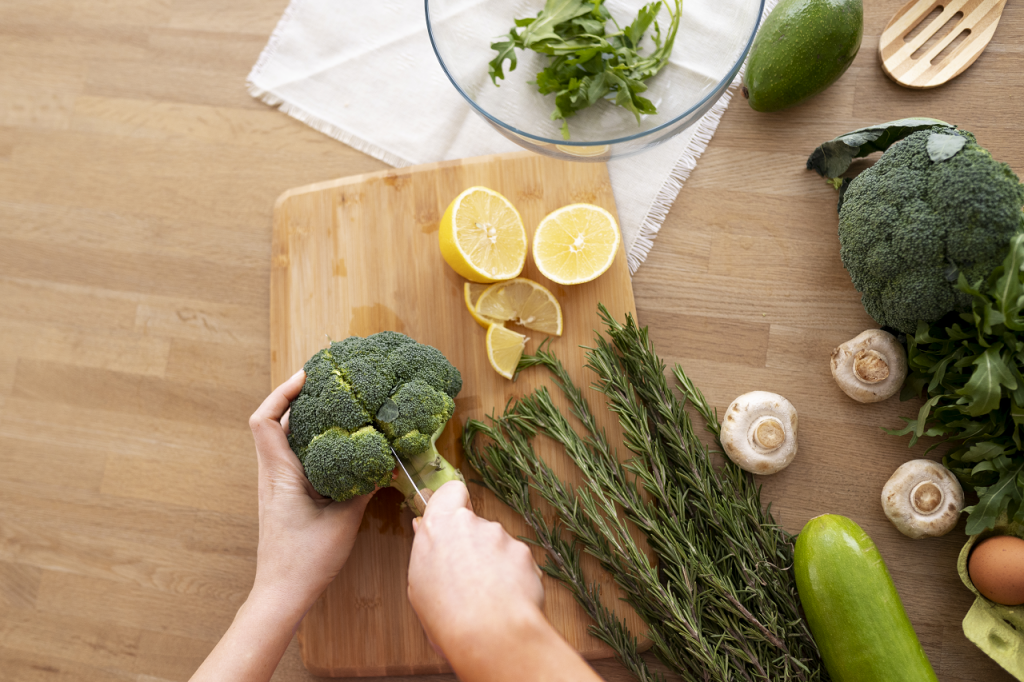Navigating the nutritional landscape can be particularly challenging for vegetarian athletes, who may encounter difficulties in obtaining sufficient proteins, minerals, and vitamins essential for peak performance from plant-based sources alone. Research underscores the importance of a balanced diet in supporting athletic endeavors, yet points to potential deficiencies in protein, calcium, vitamin B12, vitamin D, and iron that plant-based diets may incur. This highlights the need for supplements for vegetarian athletes to ensure they meet their nutritional needs effectively.
However, the benefits of embracing a vegetarian or vegan lifestyle, including a lower risk of chronic diseases and positive impacts on heart health and recovery times, can’t be ignored. Emphasizing the right supplements for vegetarian athletes becomes crucial to bridge this nutritional gap and enhance their overall health and athletic performance.
In addressing the needs of vegetarian athletes, this article delves into the best supplements to complement their diet, ensuring they meet the macronutrient and energy demands of rigorous training and competition. Incorporating best supplements for vegetarian athletes with a focus on iron, protein, calcium, vitamin B12, and omega-3 fatty acids, among others, this guide provides a comprehensive overview of how to maintain a nutrient-rich diet that supports athletic performance. Given the pivotal role of supplements in fulfilling dietary requirements, we explore both synthetic and organically sourced options to offer well-rounded nutritional support tailored to the unique needs of vegetarian athletes.
The Role of Fats in a Vegetarian Athletic Diet
Fats play an indispensable role in the diet of vegetarian athletes, providing a concentrated source of energy essential for high-performance activities. Unlike diets that include animal products, vegetarian diets tend to be lower in total and saturated fats, but they can be adequately adjusted to meet the energy and nutritional demands of athletes.
Importance of Fats in Energy and Health
Fats are not only a vital source of energy; they also aid in the absorption of fat-soluble vitamins, support cell growth, and protect vital organs. For vegetarian athletes, ensuring an adequate intake of healthy fats is crucial for maintaining energy levels and supporting metabolic functions during intense training sessions.
Sources of Healthy Fats
Vegetarian athletes should focus on incorporating a variety of plant-based fat sources to ensure a well-rounded intake. Healthy unsaturated fats, which can help reduce inflammation and improve heart health, can be found in:
- Nuts and seeds like walnuts, flaxseeds, and chia seeds
- Plant oils such as olive oil, walnut oil, and hemp oil
- Avocados, which are also a good source of fiber and essential vitamins
Balancing Omega-3 and Omega-6 Fatty Acids
While vegetarian diets are higher in n-6 fatty acids, it is crucial to balance these with omega-3 fatty acids, which are anti-inflammatory and support heart, brain, and joint health. Plant-based sources of omega-3 include:
- Flaxseeds and flaxseed oil
- Chia seeds
- Hemp seeds
- Walnuts
- Microalgae supplements, which are a direct source of DHA and EPA, beneficial forms of omega-3 typically found in fish oil
Recommended Fat Intake
For optimal performance and health, vegetarian athletes should aim for a fat intake that constitutes about 20-35% of their total daily calories. Most of these fats should come from unsaturated sources. It’s also advised to limit the intake of saturated fats and avoid trans fats, which are commonly found in processed foods and can increase the risk of heart disease.
Incorporating a variety of these fat sources ensures that vegetarian athletes can achieve the recommended daily intake of fats, helping to enhance their athletic performance and overall health. By carefully selecting high-quality fat sources and monitoring their intake, vegetarian athletes can support their energy needs and nutrient absorption effectively.
The Omega 3 supplement we have to recommend to you: Nothing Fishy Omega 3

Micronutrients and Supplementation
Vegetarian and vegan athletes face unique challenges in meeting their nutritional needs, especially when it comes to micronutrients essential for optimal health and performance. Achieving micronutrient sufficiency is crucial, and supplementation plays a key role in ensuring that vegetarian athletes receive adequate levels of vital nutrients.

Essential Supplements for Vegetarian Athletes
Vitamin B12
Vitamin B12 is predominantly found in animal products, making it a critical supplement for vegetarians and vegans. It is essential for nerve function, brain health, and the production of red blood cells. Vegetarian athletes should consider B12 supplements or consume fortified foods to maintain adequate levels.
We also have a B12 supplement that might interest you: B12 supplement for vegan

Iron
Iron is vital for transporting oxygen throughout the body, and its deficiency can lead to fatigue and impaired athletic performance. While plant-based sources like lentils and spinach provide iron, its bioavailability is lower than that from animal products. A supplement, particularly in the form of iron bisglycinate, can help maintain optimal levels without causing gastrointestinal distress often associated with other forms of iron.
If you want to boost your iron intake, we recommend three products: Anti-Fatigue Multivitamin, Eye Health Multivitamin y Gentle Iron & Vitamin C.
Calcium and Vitamin D
Both nutrients are crucial for bone health, with calcium playing a key role in muscle function and nerve transmission. Vegan athletes may find it challenging to intake sufficient calcium through diet alone. Supplementing with calcium in combination with vitamin D, which helps the body absorb calcium, is advisable, especially during the winter months or in areas with limited sunlight.
Of course, we also have a Vitamin D supplement to recommend to you: Vitamin D3 and K2

Zinc
Zinc supports the immune system, aids in wound healing, and is essential for cell division. Vegetarian sources of zinc include legumes, nuts, and seeds, but supplementation may be necessary to meet the demands of an athletic lifestyle, ensuring adequate intake for optimal recovery and health.
Protein Sources for Vegetarian Athletes
Protein is a crucial nutrient for athletes, providing the essential building blocks for muscle repair and growth. Vegetarian athletes, in particular, need to be mindful of their protein intake to ensure they are meeting their body’s needs, especially given the physical demands of their training. Fortunately, a well-planned vegetarian diet can meet these requirements through a variety of plant-based protein sources.
Understanding Protein Needs for Vegetarian Athletes
It’s a common misconception that vegetarian athletes struggle to consume enough protein. However, most individuals, including athletes, can easily meet their protein requirements with a diet rich in whole foods. The key is to focus on variety and quantity to cover the spectrum of essential amino acids. For athletes, the general recommendation is to consume between 1.2 to 1.7 grams of protein per kilogram of body weight per day, depending on the intensity and type of sport.
High-Protein Vegetarian Foods
A diverse array of plant-based foods can offer ample protein for vegetarian athletes. Here are some of the top sources:
- Legumes: Beans, lentils, and chickpeas are not only high in protein but also provide fiber and essential minerals. For example, a cup of cooked lentils contains approximately 18 grams of protein.
- Whole Grains: Quinoa and amaranth are complete proteins, which means they contain all nine essential amino acids. A half-cup serving of cooked quinoa provides about 4 grams of protein.
- Nuts and Seeds: Almonds, chia seeds, flaxseeds, and hemp seeds are excellent sources of protein and healthy fats. An ounce of almonds offers around 6 grams of protein.
- Soy Products: Tofu, tempeh, and edamame are all derived from soybeans and are among the richest sources of protein in a vegetarian diet. A cup of cooked tempeh contains about 31 grams of protein, making it a powerhouse for muscle repair and growth.

Meal Planning for Optimal Protein Intake
To ensure they are getting enough protein, vegetarian athletes should plan their meals carefully. Incorporating a variety of protein sources throughout the day can help achieve a balanced intake of amino acids. For instance, a breakfast of steel-cut oats with almond butter, a lunch of quinoa salad with chickpeas, and a dinner featuring stir-fried tofu with vegetables covers a broad spectrum of plant-based proteins.
We have a complete section of vegan protein for you. You can see it here: Our Premium Plant Protein Selection
FAQs
What essential supplements should vegetarian athletes consider?
Vegetarian athletes should be mindful of certain nutrients that may be less abundant or less well absorbed from plant sources. These include iron, zinc, calcium, vitamin D, iodine, and some B-vitamins, specifically B-12 and riboflavin.
What are the most important supplements for vegetarians to take?
Vegetarians generally consume ample vitamin C due to a diet rich in fruits and vegetables. However, zinc and Omega 3 fatty acids are two critical nutrients that vegetarians should focus on, as they play a vital role in protecting against heart disease and other conditions.
What should a vegetarian athlete’s diet include to be healthy?
A healthy vegetarian athlete’s diet should encompass a variety of whole grains, legumes, fruits, vegetables, nuts, and seeds. It’s also beneficial to use fortified foods, such as fortified orange juice for calcium, or iodized salt for iodine. Supplementation may be necessary for certain nutrients.
How can vegetarian athletes ensure they are getting enough protein?
Vegetarian athletes can obtain sufficient protein from plant-based sources such as soy products (tofu, edamame, soymilk), lentils, chickpeas, beans, quinoa, chia seeds, flax seeds, nuts, peanut butter, and a variety of peas (including snap peas, snow peas, split peas, or black-eyed peas). Additionally, mushrooms, green leafy vegetables, and various grains are good sources of protein.
We’ve reached the end of our guide on “Best supplements for vegetarian athletes” yet our blog is brimming with even more content to capture your interest. At Vegetarian Protein, we pride ourselves on presenting an extensive selection of dietary supplements for vegetarians, complete with critiques and valuable insights. You’re always welcome to come back for more information. Should you find this piece beneficial, spreading the word would immensely help us!



